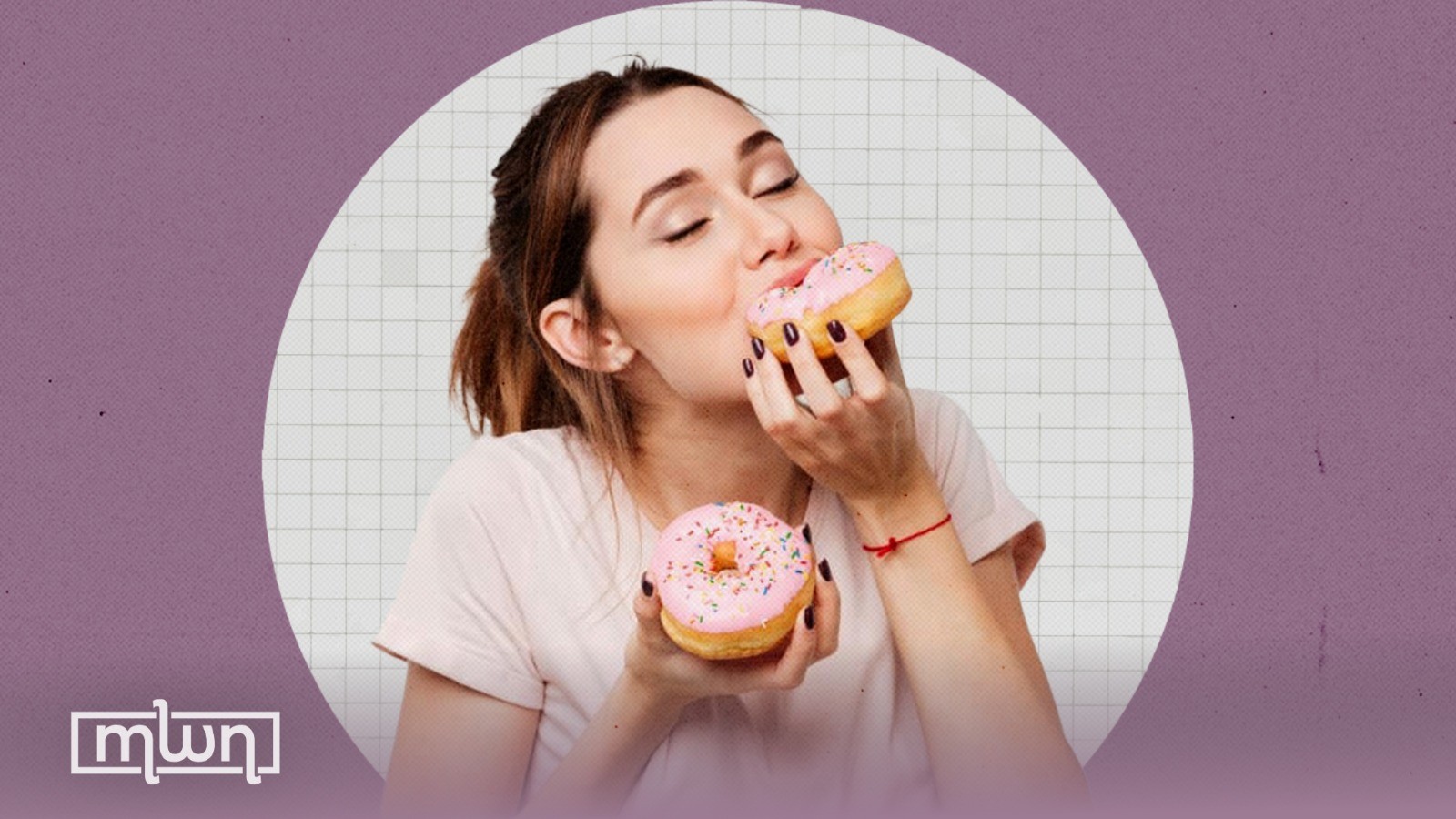Rabat – After a rough day, have you ever found yourself elbow deep in a container of ice cream? Perhaps inhaling a bag of chips more quickly than you can say “cheese”?
Welcome to the thrilling bumpy journey of emotional eating.
Imagine that your day was filled with drama, tears, and enough turns to make your head spin; just like in a soap opera.
Your email looks like a digital waste, your boss dumped a bombshell assignment on your desk, and what about your romantic life? To put it plainly, it’s a rom-com without the rom.
What would be your go-to solution? For many, it’s diving headfirst into a plate of their favorite comfort food.
Like any wild ride, emotional eating has its ups and downs.
Everyday Health, a website of an award-winning editorial team committed to support people in their journey to live a healthy life, states that emotional eating lacks a universally agreed-upon clinical definition and is not formally recognized as a clinical diagnosis.
The website explains that it is frequently used informally to describe eating as a means of dealing with negative emotions.
Emotions that lead you straight to the fridge
1- Stress
Ah, stress, the silent saboteur of sanity.
Whenever life tosses us curveballs quicker than a tennis ball machine at full speed, it makes sense to run to comfort food for a hug.
These food lifelines, which might include delicious bocadillos or a chocolate cake, provide a momentary escape from the stress of daily existence.
Honestly, it’s about taking a quick break from the storm that’s raging both within and outside and finding a little serenity in the middle of the mayhem.
However, as experienced stress eaters can attest, there’s a narrow line separating us from using food as solace and from burying our sorrows in an ocean of chips.
What starts as a well-intentioned craving can quickly spiral into a full-blown binge, leaving us feeling more out of control than ever before.
Are we truly hungry, or are we simply seeking solace in the familiar embrace of comfort food?
A user on X, formerly Twitter, clarified the situation by stating, “You’re not a foodie, you’ve been stress eating for the last 3 years.”
Sometimes, it’s less about nourishing bodies, and more about numbing emotions with every bite.
2- Boredom
It’s the sworn enemy of empty stomachs everywhere.
When the minutes drag on like a Monday morning meeting and the clock mocks you with its relentless ticking, it’s all too easy to turn to snacks for salvation.
Imagine that you are caught in a never-ending circle of boredom, that your to-do list is as inspiring as beige wallpaper, and that the lunch break, which you are looking forward to more eagerly than a child on Christmas morning, is the highlight of your day.
All of a sudden, that box of cookies or that bag of chips becomes a ray of hope in an otherwise boring life, providing a little thrill in the middle of a dull day.
It’s not just about filling our bellies; it’s about filling the void left by the monotony of everyday life.
The problem with eating out of boredom is that it may go from a healthy snack to a full-blown binge.
What starts as a well-intentioned craving may easily get out of hand and leave us feeling even more empty and unfulfilled than before.
3- Sadness
When sadness strikes, it’s common to seek comfort in familiar foods that evoke feelings of warmth.
Sadness can often feel overwhelming, leaving us feeling emotionally drained and numb.
In an attempt to dull the ache of sadness, we may turn to food as a form of self-medication, using the temporary pleasure of eating to distract ourselves from the pain we’re experiencing.
In an otherwise chaotic environment, food may provide us with a sense of control by letting us choose what to eat and when.
But this illusion of control is frequently short-lived and can eventually result in emotions of guilt and powerlessness.
4- Happiness
You read that correctly; emotional eating can be triggered by happiness as well.
When life hands us a win, whether big or small, it’s only natural to want to celebrate with a tasty treat.
These delectable treats, which range from birthday cakes to drinks, are a great way to enjoy life’s sweet moments and make enduring memories with the people we care about.
When we reach a goal or overcome a challenge, we may feel deserving of a reward, and what better way to reward ourselves than with our favorite foods?
Happiness has a way of enhancing all of our senses, including our taste buds.
Emotional eating is frequently linked to unpleasant feelings like stress or sadness, but it’s vital to remember that it may also be a fulfilling and enjoyable activity.
The million question: is emotional eating good or bad?
Like most things in life, the answer isn’t black and white.
As per the food blog Well and Good, some experts argue that emotional eating can serve a legitimate purpose in individuals’ lives.
Stacey Linton, a Psychologist mentioned in an article on the website, agrees that emotional eating might not necessarily be harmful.
“An individual who usually has high insight into their emotions, and often utilizes positive coping strategies, may find themselves eating a whole tub of ice cream after a relationship breakdown while watching The Notebook,” says Stacey.
In the same article, Paige Smathers, a registered dietitian nutritionist, highlights, “The problem occurs when emotional eating is your only tool to cope or deal with discomfort.”
On one hand, emotional eating can offer temporary relief from distressing emotions and provide a sense of comfort and familiarity in times of need.
It may be a coping strategy that gets us through life’s ups and downs with a little extra sweetness along the way.
Yet, on the flip side, relying too heavily on food as a source of comfort can lead to a host of negative consequences, including weight gain, poor nutrition, and feelings of guilt or shame.
Emotional eating can also keep us from dealing with the underlying problems that are causing our emotions, so we end up covering things up instead of facing them head-on.
Bon appétit!
From stress-induced snacking to happiness-fueled feasting, we’ve explored the highs and lows of treating our emotions to a side order of fries and a dash of self-awareness
After all, you just want to be with the one that makes you laugh.
If that happens to be a slice of cake or a delicious tagine, well, that’s just the cherry on top.
Let’s not forget the most important ingredient of all; self-awareness.
















